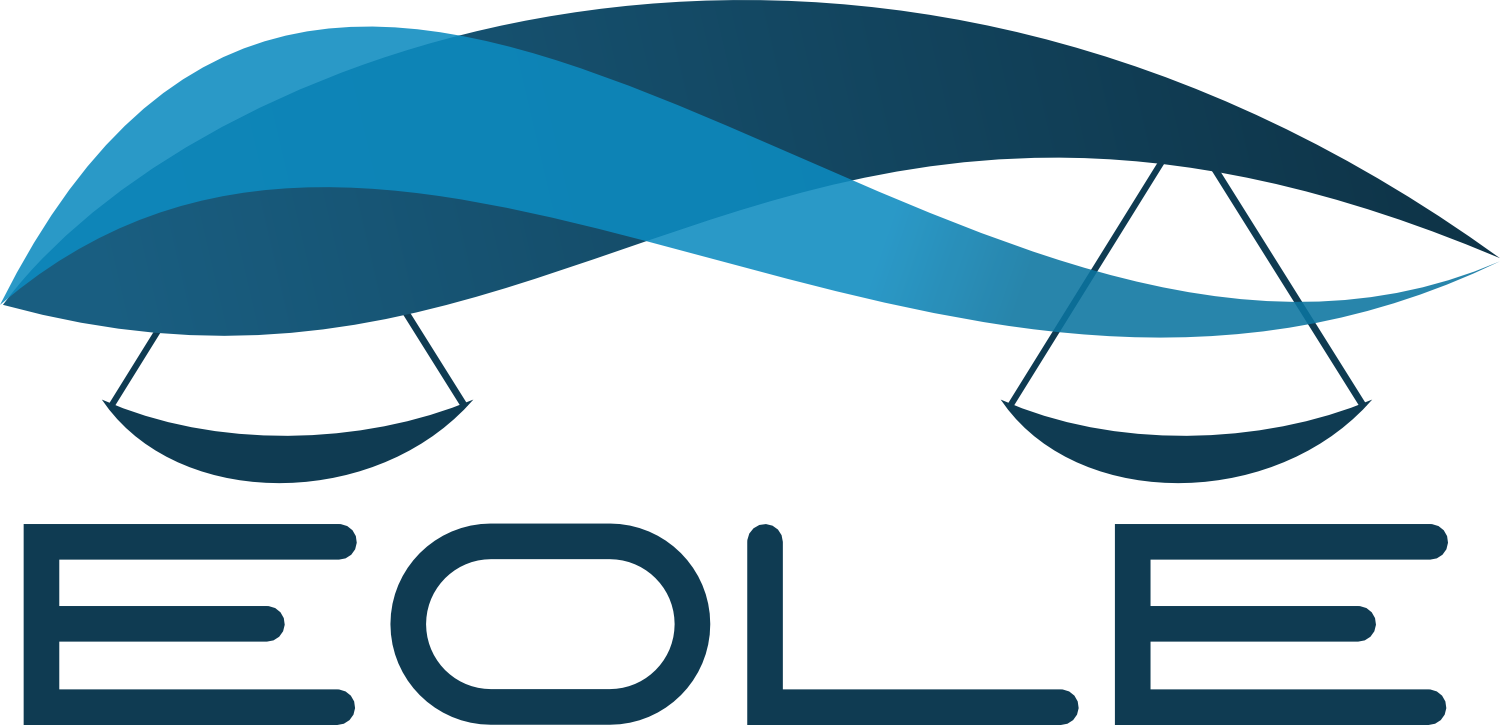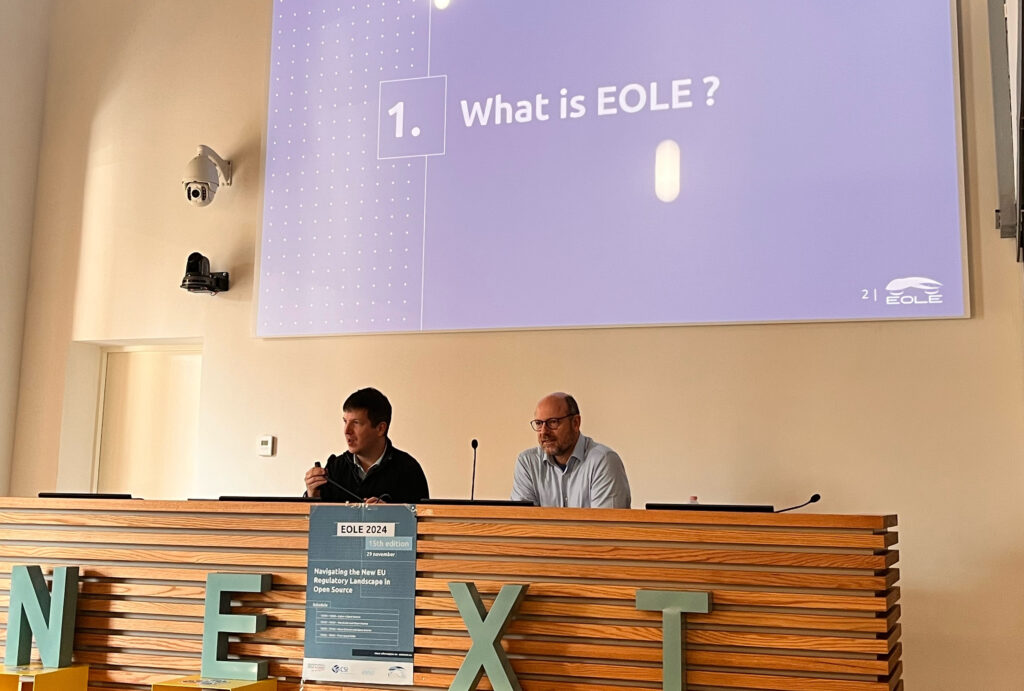
EOLE 2024
The European Union has been on a regulatory spree in the digital space, affecting a wide range of Information and Communication Technologies (ICTs), including the previously less regulated area of open source software. Key regulations such as the Cyber Resilience Act, the Artificial Intelligence Act and the Product Liability Directive have begun to reshape the framework within which Open Source software stakeholders operate. In addition, the General Data Protection Regulation (GDPR) and the Copyright in the Digital Single Market Directive continue to have a profound impact on the licensing, development and distribution of open source projects.
This year, EOLE organised its conference in Turin on 29 November 2024. We discussed and analysed the impact of these emerging regulations on open source projects, communities and software ecosystems. We invited thought leaders, legal experts, developers and policy makers to engage in a critical dialogue through presentations and workshops focusing on both the specific nuances of open source software regulation and the broader regulatory trends that could significantly influence Open Source dynamics.
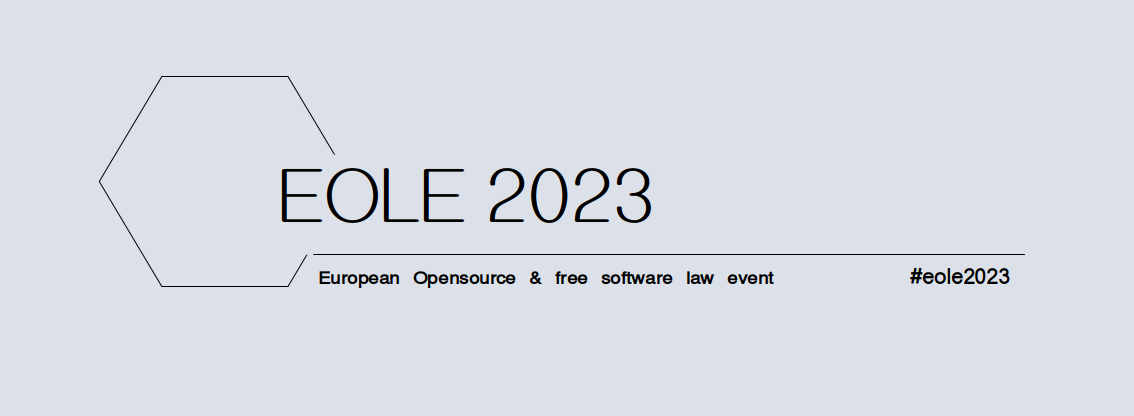
EOLE 2023
The 2023 edition of EOLE alternated between a series of thematic workshops (available by video-conference and/or locally in Paris, Barcelona and Turin) mixing legal and technical approaches to Open Source compliance and a synthesis day at the end of 2023 in Paris. The aim, this year, was be to draw on examples of concrete projects and scientific work demonstrating that open compliance can be – and indeed should be – accessible to all.
This year, the event has been divided into 3 webinars and took place from May 2023 to September 2023. The event ended with an in person event the 7th of December in Paris, France hosted by Open Source Experience event.
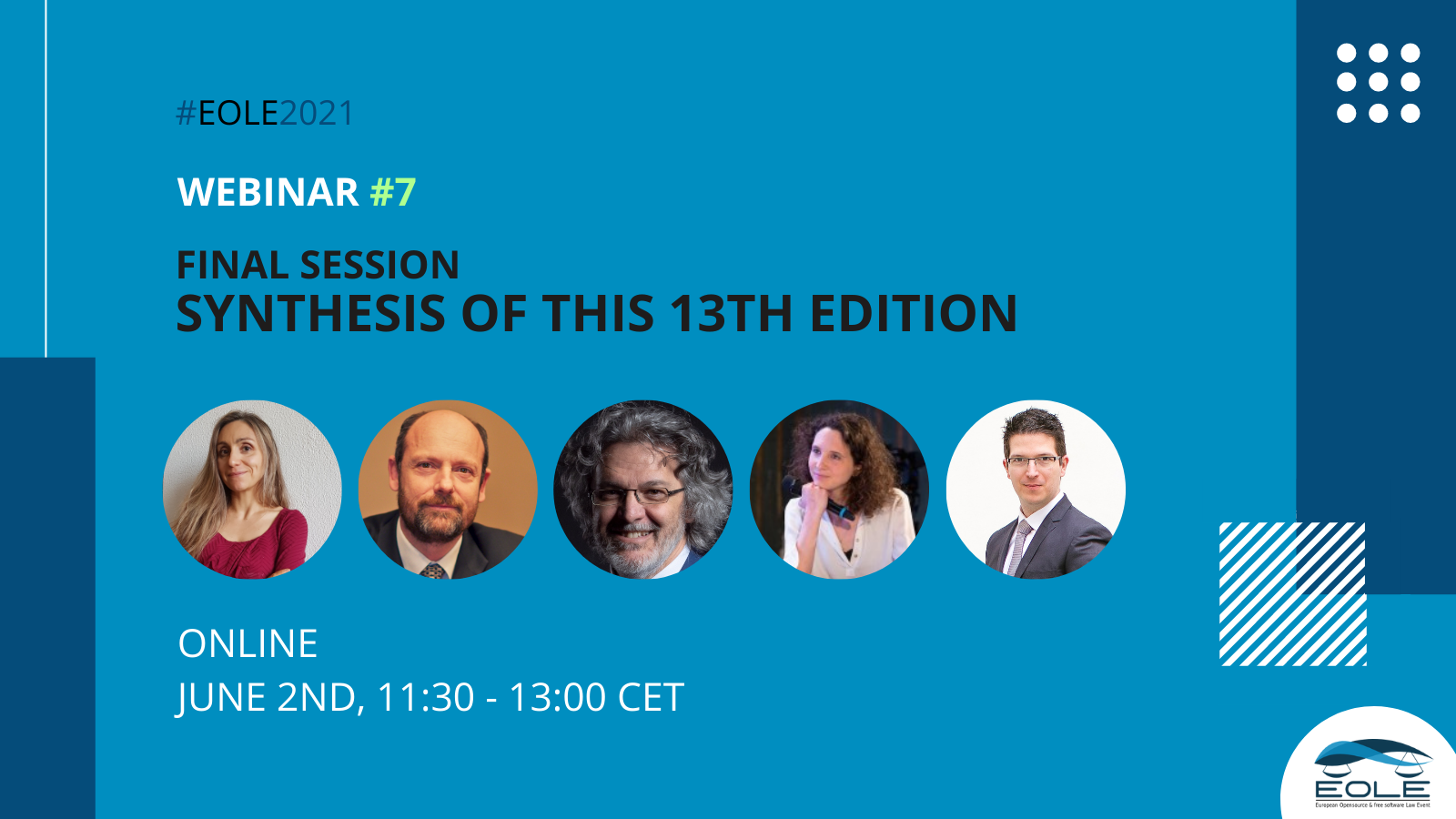
EOLE 2020-2021
For a long time, Free and Open Source Software has been more a “potential” rather than a reality in Public Administration, dominated by large private sector IT contracts. In the last few years, however, Public Administrations around the world have really started to take FOSS seriously on a formal basis, with significant initiatives (such as laws fostering free software adoption or distribution by Public Administrations, and the EU “Join-Up” program).
This year’s EOLE webinars, held in association with the CSI Piemonte, will focus on the current legal issues of creating and using free and open source software in public administration.
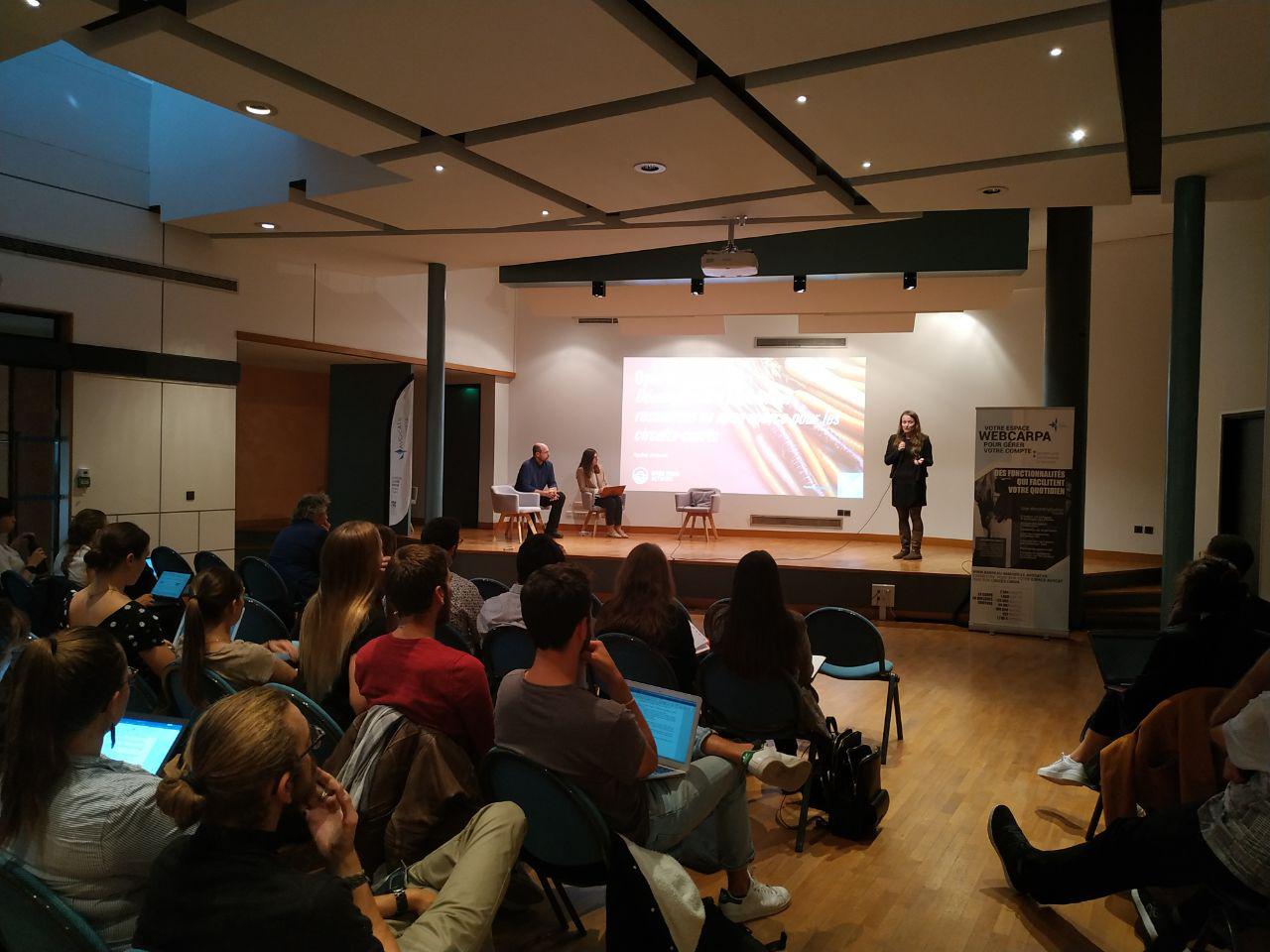
EOLE 2019
Necessity for some, alternative for others, digital commons are becoming the new collective goal in a society someway too technological and not enough human oriented. This increasing phenomenon is transforming the way of working of traditional actors from numerous sectors: health, mobility, spatial, Legal, etc.
For the 12th edition, EOLE has been hosted in Marseille (France) by the event Numérique en Commun[s] for a one-day event mixing conferences and workshops, with people from both digital commons and Open Source projects in order to share thoughts, experiences and ideas.
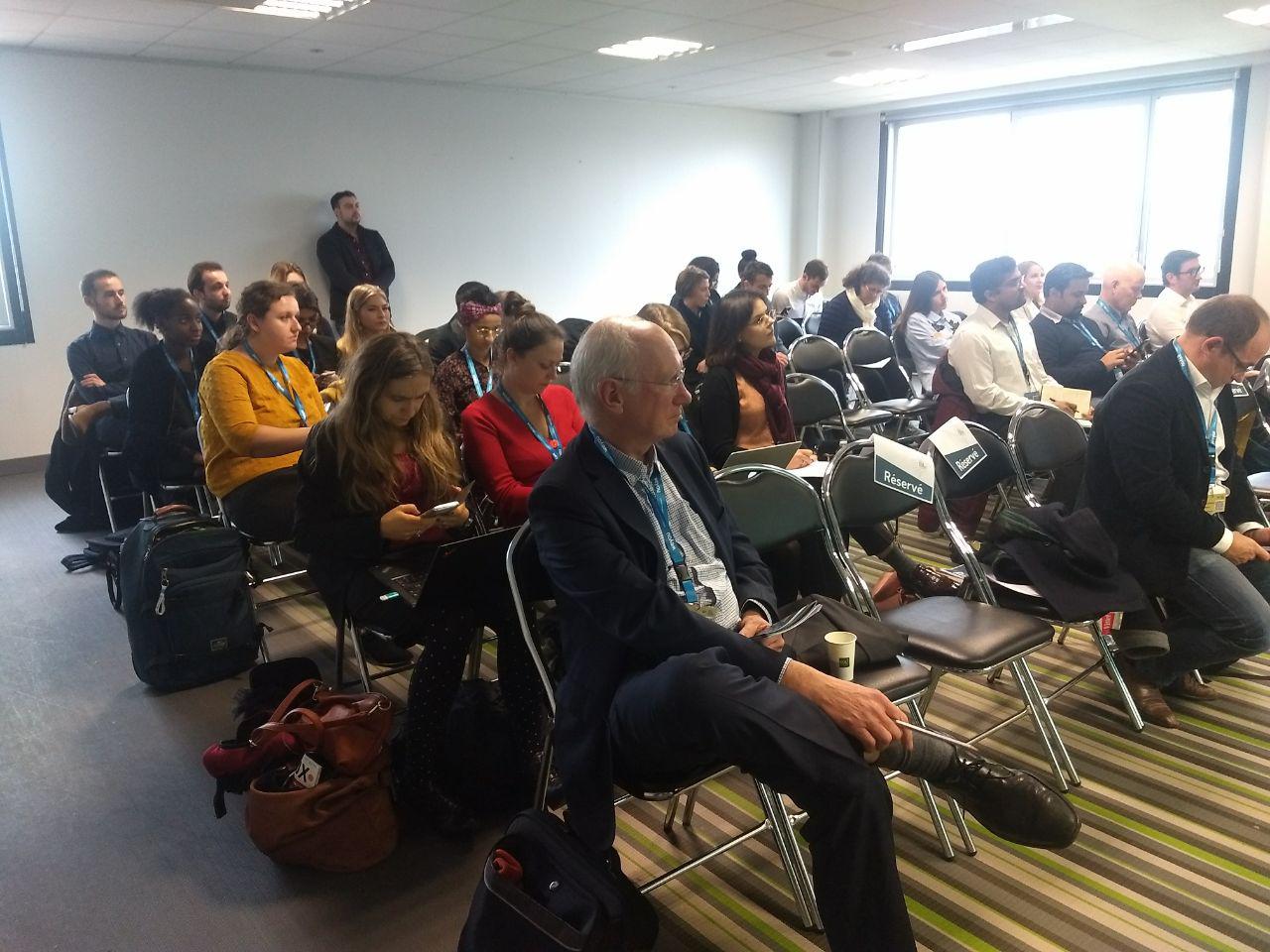
EOLE 2018
Many actors gradually establish good practices relying on international standardization processes, deployment of specific tools, or the design of standards. These good practices enable the organization to respect licences, but above all to fully benefit from free and open source software by focusing on its own added-value.
In this context, increasingly integrated in industrial processes of open source user and producer organizations, the conformity management has now acquired a strong maturity thanks to numerous international initiatives of standardization and automation. Resolutely turned towards this thematic, the edition 2018 has allowed to report the state of progress of these different works and to anticipate the next major evolution of the area.
The edition 2018 of EOLE, organized for the third consecutive year in partnership with the Paris Open Source Summit (POSS), was the opportunity to present these good practices by focusing on conformance processes in a time of mainstream open source.
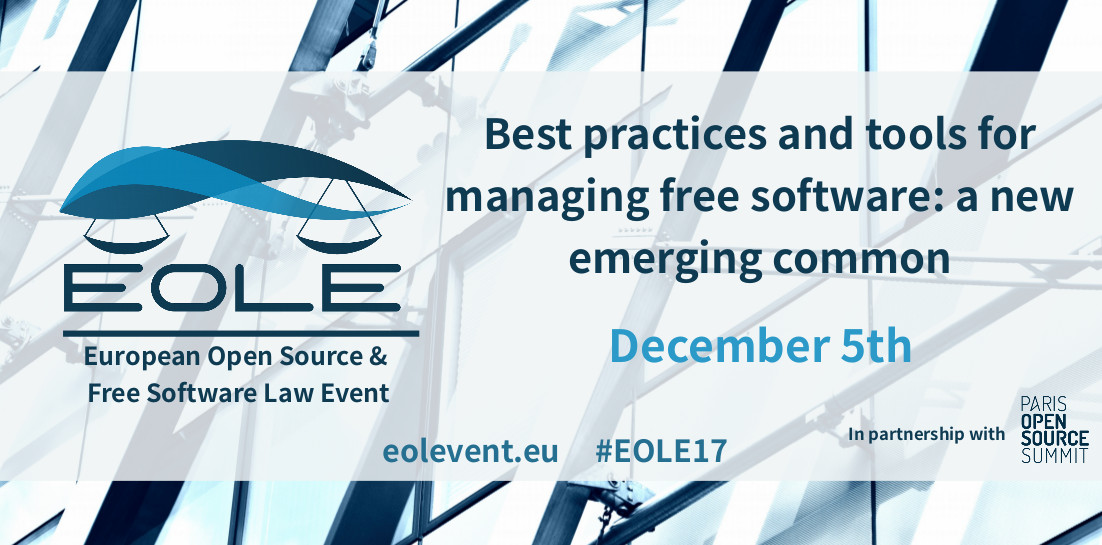
EOLE 2017
More and more resources (tools, standards, processes, etc.) are being pooled, and many organisations are inclined to share their own work. This “loss of control” is all the less risky as it allows them to benefit from pooling, to share the potential risks associated with certain analyses or practices, or to open up more widely to the benefit of Open Source communities.
The 2017 edition of EOLE, organised to coincide with the Paris Open Source Summit, was an opportunity to present these good practices by looking at the possibilities of mutualisation.
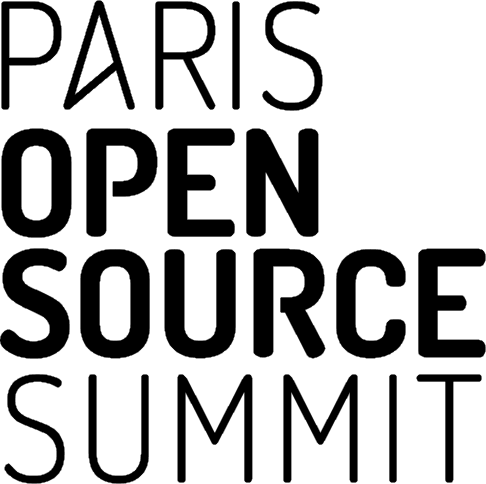
EOLE 2016
The 8th edition of EOLE was organized in close connexion with the Paris Open Source Summit on the Open Innovation topic, to highlight legal practices to offer, when possible, hints of solutions.
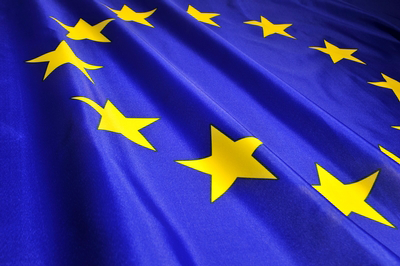
EOLE 2015
The definition of Free and Open Source Software is based on the freedoms and rights that are shared with the users and possible contributors. Increasingly relied on in the industrial sector, it allows any actor to benefit from proven and standardized solutions; and to take part to a mutualized endeavor by bringing contributions within an existing community or by creating its own project. The software will then remain free and Open Source as long as the project is open to new contributors and as the building material (source code, installation scripts, etc.) and as the corresponding intellectual property rights are shared.
From a competition point of view, free and open source software are a unique tool that enables and reinforces openness and freedom in the markets, by relying on traditional bases such as intellectual property and contract law. By a subversive use of the latter, it profoundly modifies the relationships between the stakeholders: competitors and partners, employers and employees, buyers and suppliers, outsourcers and editors, etc… FOSS’ effects are positive and companies benefit from fostering its use. Defining the rules between the actors and stakeholders is essential, and on this regards, the legal aspects are as essential and as the governance structure and the technical aspects of the project.
However, the participation in the movement by an increasing number of industrial actors (including even the biggest software editors which showed several degrees of antagonism) lead to the development of alternative positions that somehow deviate from the initial mutualization objectives. To their more extreme extent, these positions lead to deviant use of rights (asymmetrical licenses, additional restrictions, contradictory use of industrial rights such as patents or trademarks, non-reasonable use of exceptions, etc.) or to unfair or abusive commercial practices.
The objective of this 8th iteration of EOLE is to make an assessment of the current usages or practices that can encumber the openness of the Free and Open Source Software, and to analyze their impact on the market and on the adoption of Free and Open Source Software and/or together with proprietary software, as well as their compliance with the trade practices and competition rules.
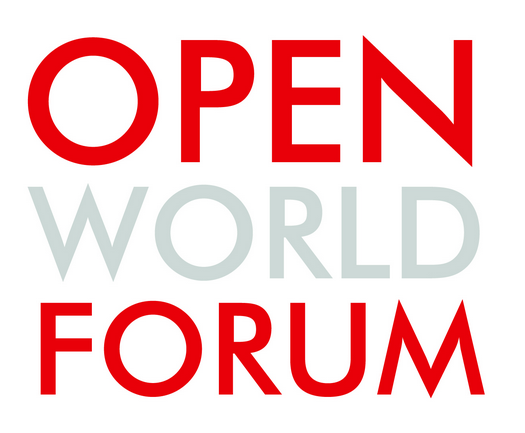
EOLE 2014
The 7th edition of EOLE, organized on October 31, 2014, combined two Open World Forum’s sessions: “Legal and licensing aspects of open source” – co-organized by Martin Michlmayr (Hewlett-Packard) and Philippe Laurent (MVVP) – and “Open Source & software supply chain” – co-organized by Claus-Peter Wiedemann (BearingPoint GmbH) and Benjamin Jean (inno³).

EOLE 2013
For its 6th edition, it was time to analyze the impact of the cloud on free & open source software and its legal consequences, in terms of licensing and compliance. Friday, December 6, 2013 at Bruxelles.
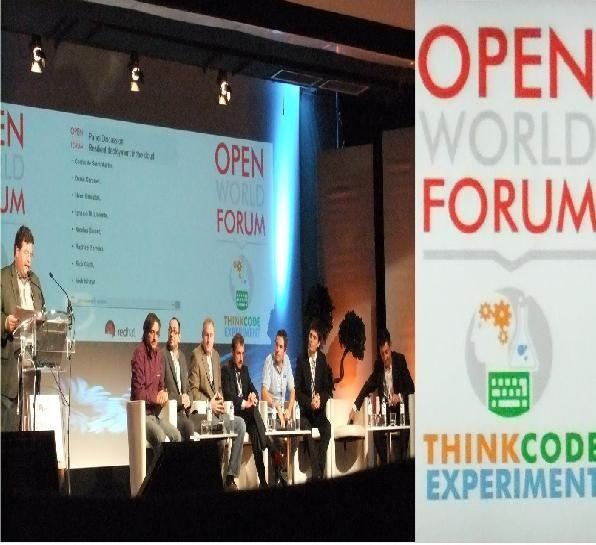
EOLE 2012
The 5th edition was in Paris, October 12th and 13th 2012 : a whole day of conferences hosted by the Open Word Forum day for conferences and a one-day Legal bar camp by La Cantine.
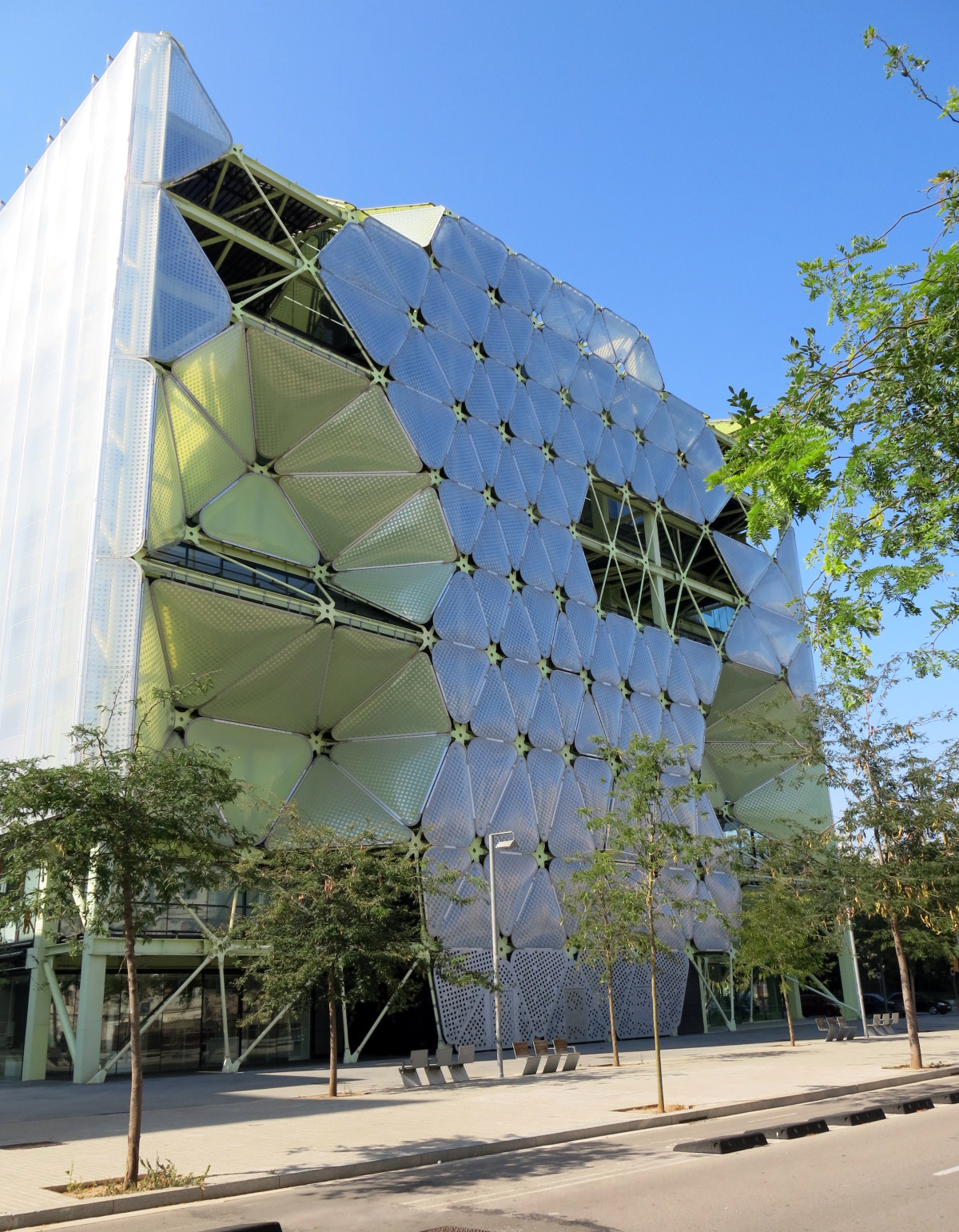
EOLE 2011
The fourth edition was in Barcelona, in November 4th 2011, with speakers from industry, academic and enterprise research and public sectors.

EOLE 2010
The third edition was organized in November 29th 2010 and hosted by the Piemont Region (Italia) with two days of conference, more than 30 speakers from the whole world (Brazil, USA, Ecuador, India, Europe, etc.).
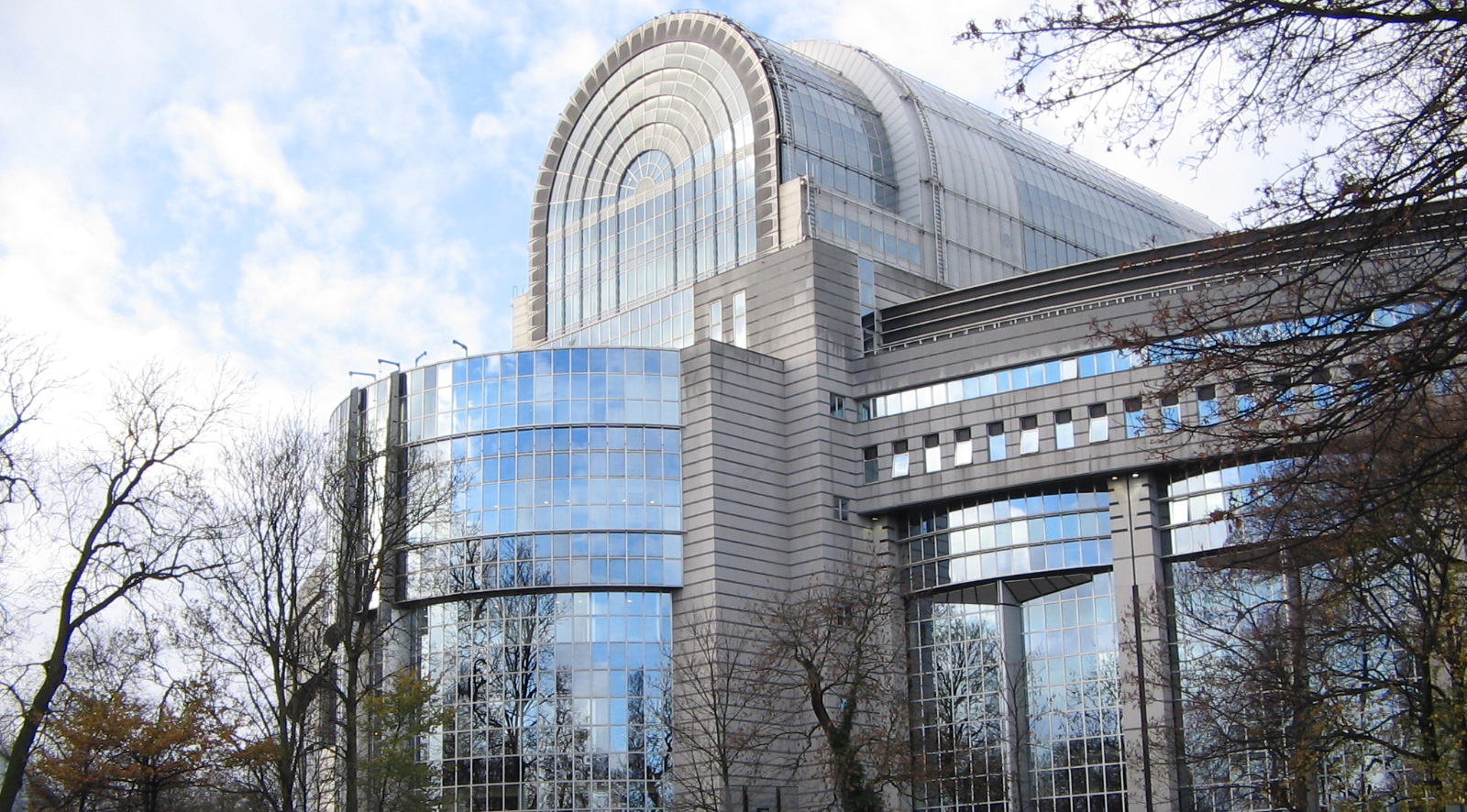
EOLE 2009
The second edition was held on December 9th 2009 in Brussels, hosted by the European Parliament with more than 20 speakers from USA, India, Europe, etc.
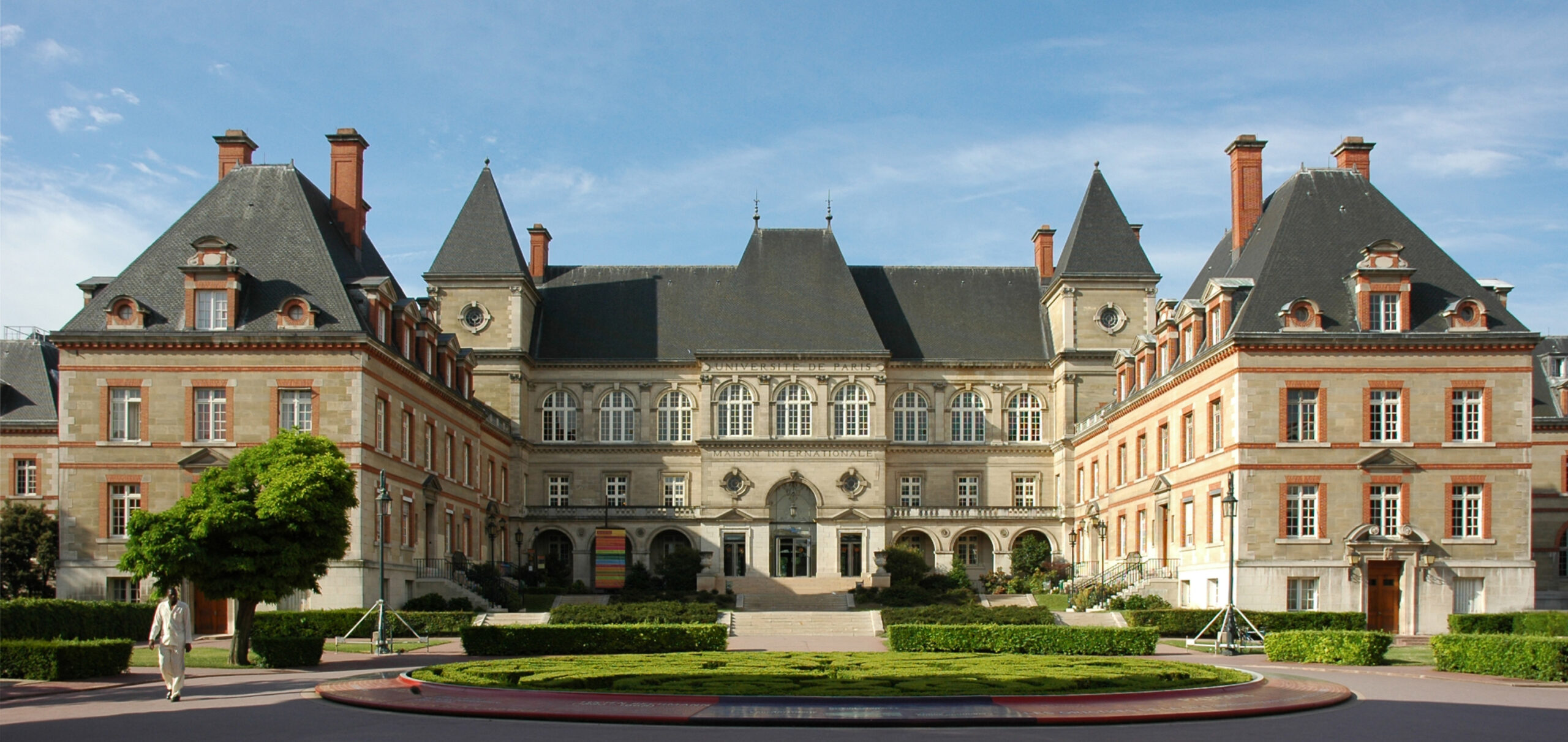
EOLE 2008
The first edition, in 2008 during the event « Paris Capitale du Libre » at Paris was a great success with more than 20 speakers from the USA and Europe.
